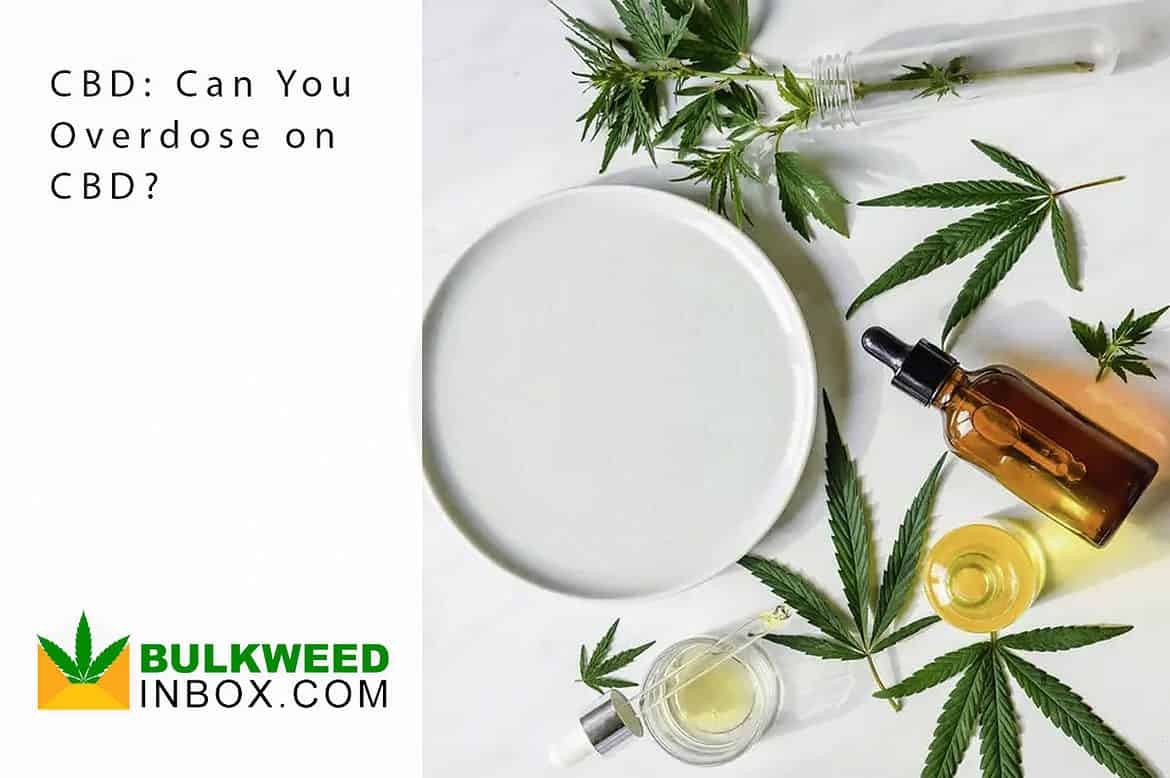When it comes to cannabidiol (CBD), there are plenty of myths floating around. From the dangers of taking too much CBD and how to overdose on it, to whether or not you can take it as a supplement. There’s a lot of confusion about this compound and its many uses. So what is the truth? Can you overdose on CBD? And when should you take it? Let’s take a look at some of these common questions and answers:
What is CBD?
CBD, short for cannabidiol, is one of many compounds found in the hemp plant. It is thought to have positive effects on the body, including acting as an anti-inflammatory and anti-anxiety agent. Unlike tetrahydrocannabinol (THC), the compound that makes people feel “high” when they take marijuana, CBD does not give users a “high.” Instead, it is thought to have several health benefits, including acting as an anti-inflammatory, anti-anxiety and immune-boosting agent. In addition, some studies suggest that CBD can help treat diseases and illnesses such as epilepsy, cancer, diabetes, stress, and Alzheimers. CBD products are sold in different forms, including capsules, tinctures, oils and edibles. Not all products claim to contain the same amount of CBD, so it’s important to read product labels before buying anything.
How Does CBD Work?
The endocannabinoid system (ECS) is made up of receptors and compounds found in the human body that interact with cannabinoids to cause biological response. There are two types of receptors in the ECS. One type is cannabinoid receptors that interact with cannabinoids like CBD and THC, while the other type is vanilloid receptors found mainly in the brain that interact with compounds called vanilloids. The ECS is involved in a variety of functions, including stress and pain response, immune response, and memory and neurophysiology. When the ECS is activated, it can influence cognitive function, including memory and learning. CBD acts on the endocannabinoid system by binding to cannabinoid receptors, which modifies the activity of nearby nerves. This reduces the activity of nearby nerves, which reduces stress response and pain response.
When Should You Take CBD?
Depending on the reason for taking CBD, certain times may be more suitable than others. For example, if you are looking to treat anxiety or sleep disorders, it may be best to take CBD in the evening before bed. However, during low-stress times when you are not under too much stress, such as during the day, you may be able to take CBD at any time of the day. There are currently no significant contraindications for taking CBD. However, certain conditions should be taken into consideration, such as those with high levels of inflammation.
Side Effects of CBD
As with any medication, there are some side effects that come with taking CBD.
Some side effects of CBD include:
- Nausea
- Headaches
- Dry mouth
- Diarrhea
- Dizziness
- Nervousness
Some people experience side effects that are much milder than others. For example, some people may feel a slight change in mood, while others may not feel anything at all. This is normal and it is not harmful to take CBD. You should report any side effects as soon as they happen. If you have a more serious side effect, like a low blood count, you should get medical attention. The side effects of CBD are mild and generally not dangerous.
Can You Overdose on CBD?
Yes, it is possible to overdose on CBD. Unlike with many other medications, there are no reported cases of people overdosing on CBD. If you take too much CBD, it may cause you to feel dizzy or nauseous. If you start to feel any symptoms, you need to stop taking CBD to be safe. It is important to note that most people who take high doses of CBD do so for therapeutic purposes and do not experience any negative side effects. CBD has been used medicinally for many years, and studies have shown that it is a safe and effective treatment option for people who are experiencing anxiety, depression, and other mental health disorders.
Summary
CBD has many potential health benefits, including acting as an anti-inflammatory, anti-anxiety and immune-boosting agent. It is sold in different forms, including capsules, tinctures, oils and edibles. CBD is generally safe to take, but should be taken with caution and may interact with certain medications. When taken at the correct times, the side effects of CBD are usually mild and short-lasting. If you are interested in trying CBD, visit Bulkweedinbox.cc online dispensary for all your cannabis needs.
References
FHE Health – Can You Overdose On CBD? (Mar 4, 2020) – https://fherehab.com/learning/can-you-overdose-on-cbd/
Healthline – Yes, You can Take Too Much CBD – Here’s What Happens (july 21, 2021) – https://www.healthline.com/health/cbd-overdose


Leave a comment